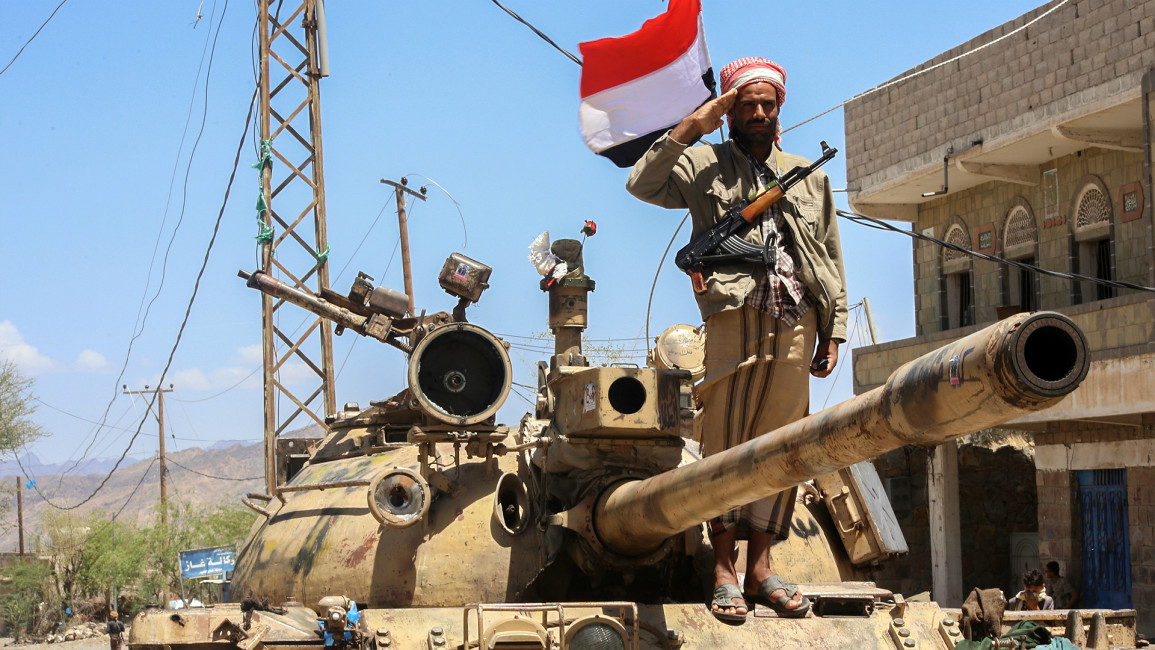Dozens killed in Yemen clashes casting shadow over ceasefire
The Gulf-backed forces were in Nihm – the scene of intense clashes in the past two weeks – when the Houthi attack took place on Wednesday.
Dozens of Houthi rebels were also killed in response to the attack, just days after a cessation of hostilities, agreed upon by all warring factions, took effect on Sunday.
The news comes as local teams of monitors were deployed across three provinces on Wednesday in an attempt to control the shaky truce while supervising the delivery of humanitarian aid.
The team of 12 consists of officers and tribal figures from all warring parties, including the Houthis and followers loyal to former president Ali Abdullah Saleh, as well as those from Abdrabbuh Mansur Hadi's current government.
On Wednesday, a senior officer was killed when a rebel sniper took aim. Six others were wounded in a mortar attack that followed.
Three children were also killed in Shabwa in a similar mortar attack.
The country's warring parties have traded accusations of jeopardising the ceasefire ahead of the scheduled April 18 peace talks in Kuwait.
A Houthi military official accused pro-government forces, including the Saudi-led coalition, of "violating the ceasefire" on Tuesday in Marib, Jawf, and Taiz.
But the violations were described as "minor" by the Saudi-led coalition, which launched a military campaign against the rebels last year.
The war has left more than 6,300 people dead since March 2015 and worsened living conditions, with more than 80 percent of the population now on the brink of famine.



